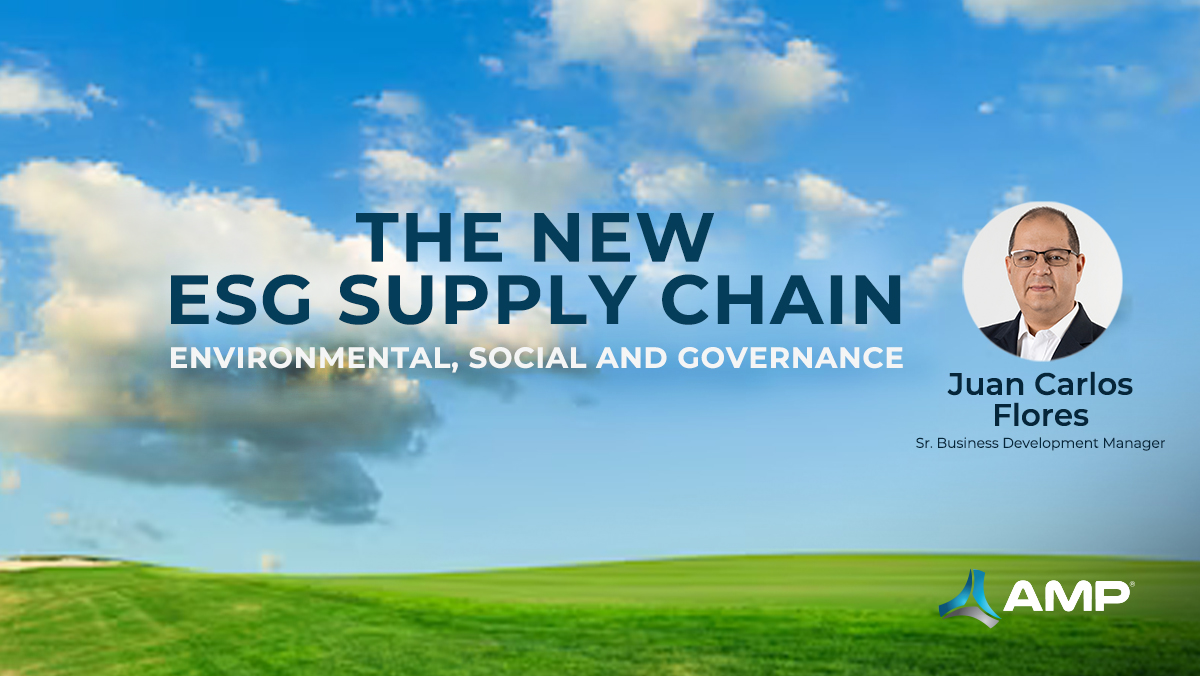By Juan Carlos Flores
ESG, or corporate attention to Environmental, Social and Governance responsibilities, has gained increasing importance in recent years. It plays a crucial role in an organization’s operations, touching and requiring consideration in almost every aspect of business. Consequently, it’s no surprise that ESG factors are gaining significance in Supply Chain operations. For instance, environmental considerations like footprint evaluations, tracking and reducing carbon emissions, sourcing and production of better materials, and minimizing, reducing and recycling waste, are applicable to both suppliers and customers alike. Social elements consider the effect that operational policies and practices have on employees, suppliers, and communities. And, governance refers to how well supply chain regulatory obligations and compliance are met.
Effective supply chain ESG management enables companies to create positive community impact, while also effectively mitigating risks and maintaining efficiency for the good of the company, strategic partners and investors in the following ways:
- Maintaining and elevating brand reputation
- Attracting additional investors
- Attracting additional suppliers
- Reducing the possibility of unexpected disruptions
- Increasing business and business growth
While all three elements of ESG are critical for businesses to include within their supply chain strategies, environmental considerations are particularly essential. Reducing the carbon footprint of the aviation industry is vital to mitigate the effects of climate change, and all stakeholders must take actions towards achieving this goal. As such, Sustainable Aviation Fuel (SAF) initiatives are a huge focus in the current environment. However, numerous other opportunities exist to lower the industry’s carbon footprint.
For instance, automation provides the aviation industry with significant capability to make strides in this area. In the traditional procurement process, airlines and MROs need to physically search through various suppliers and inventories to locate the correct part, leading to unnecessary transportation of goods and services. In contrast, automating the supply chain immediately reduces resource waste and simultaneously makes processes faster, increases transparency and frees up time for employees to engage in more strategic work.
The use of AMP’s SMART Purchasing reduces up to 97.5% emissions when compared to the traditional procurement process.
In addition, the analytics that come with automation provide better visibility to performance metrics. And, as a bonus, all these benefits heighten customer satisfaction.
Our data center, our servers, and both the administrative and operations area are in El Salvador, ranked third among all Latin American and Caribbean countries in regard to use of renewable energy sources, currently standing at 85%.
AMP’s SMART Suite offers a proven automation solution with the power to help companies achieve their carbon emission reduction objectives. In addition to the superior automation provided by the Suite, it also provides advanced analytics and a landed cost optimizing solution for shipment of parts. Together, these capabilities create a streamlined digital procurement process in which inventory and transportation can both be more efficiently managed.
The use of AMP’s SMART Shipping tool will reduce carbon emissions 83.3% in average.
On top of many realized operational benefits, MROs and airlines gain a robust tool to reduce emissions from unnecessary transportation and, in turn, contribute to a lower carbon footprint for the aviation industry.
To learn more on how we can help your company successfully adopt ESG practices, contact us at sales@airlinemro.parts

